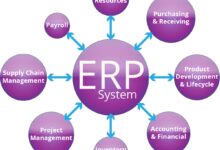ERP Implementation Consultants: 7 Proven Strategies for Success
Choosing the right ERP implementation consultants can make or break your digital transformation. These experts don’t just install software—they align technology with your business goals, streamline operations, and future-proof your organization. Let’s dive into how they do it.
What Are ERP Implementation Consultants?

ERP (Enterprise Resource Planning) implementation consultants are specialized professionals who guide organizations through the complex process of deploying ERP systems. They serve as the bridge between business needs and technological capabilities, ensuring that the software integrates seamlessly with existing workflows, data structures, and strategic objectives.
Roles and Responsibilities
ERP implementation consultants wear many hats during a project lifecycle. Their responsibilities often include conducting initial business process assessments, defining system requirements, configuring ERP modules, managing data migration, training end-users, and providing post-go-live support.
- Conduct gap analysis between current processes and ERP capabilities
- Design customized workflows within the ERP platform
- Coordinate with IT teams and third-party vendors
- Ensure compliance with industry regulations and internal policies
“A successful ERP implementation isn’t about technology—it’s about people, processes, and planning.” — Gartner Research
Different Types of ERP Consultants
Not all ERP consultants are the same. Depending on the scope and scale of the project, organizations may engage various types of consultants:
- Functional Consultants: Focus on business processes like finance, HR, supply chain, or manufacturing.
- Technical Consultants: Handle database setup, API integrations, coding, and system architecture.
- Project Managers: Oversee timelines, budgets, resource allocation, and stakeholder communication.
- Change Management Specialists: Address employee resistance and drive user adoption through training and communication.
For example, a company implementing SAP S/4HANA might hire a functional consultant to reengineer its procurement process while relying on a technical consultant to integrate the ERP with existing CRM tools via SAP’s integration suite.
Why Hire ERP Implementation Consultants?
While some companies attempt DIY ERP rollouts, most find that hiring experienced ERP implementation consultants significantly increases the chances of success. The complexity of modern ERP systems—from Oracle NetSuite to Microsoft Dynamics 365—demands expert navigation.
Expertise and Industry Knowledge
Top-tier ERP implementation consultants bring deep domain expertise across industries such as manufacturing, healthcare, retail, and logistics. This allows them to recommend best practices tailored to specific regulatory environments and operational challenges.
- Understand compliance requirements (e.g., GDPR, SOX, HIPAA)
- Apply proven methodologies from past implementations
- Anticipate common pitfalls like data duplication or workflow bottlenecks
According to a McKinsey study, organizations that leverage external consultants for change management are 1.5x more likely to report successful ERP outcomes.
Accelerated Implementation Timelines
Time is money in ERP projects. Consultants use standardized templates, pre-built connectors, and agile project management frameworks to reduce deployment time by up to 40%. Instead of reinventing the wheel, they apply lessons learned from dozens of prior implementations.
- Use rapid deployment methodologies like SAP Activate
- Leverage reusable configuration assets
- Implement parallel testing and phased rollouts
This acceleration is critical for minimizing business disruption and achieving ROI faster.
Top ERP Implementation Consultants in 2024
The market for ERP consulting services is vast, but not all firms deliver equal value. Here’s a look at some of the most reputable ERP implementation consultants based on client satisfaction, global reach, and technical proficiency.
Big Four Accounting Firms
Firms like Deloitte, PwC, EY, and KPMG dominate the high-end ERP consulting space. They combine deep financial acumen with large-scale transformation experience.
- Deloitte: Known for Oracle and SAP implementations with strong analytics integration
- PwC: Offers end-to-end digital transformation services including ERP and cloud migration
- EY: Specializes in global ERP rollouts for multinational corporations
- KPMG: Focuses on risk management and compliance during ERP transitions
These firms often charge premium rates but provide unparalleled governance and reporting structures. More information can be found at Deloitte’s ERP services page.
Niche and Regional Specialists
Smaller boutique firms often outperform larger players in specific industries or geographies. For example:
- Blue Rock Information Systems: Focuses on Microsoft Dynamics GP for mid-sized manufacturers
- Tridea Partners: Specializes in NetSuite implementations for fast-growing SaaS companies
- ERPIS: A regional leader in Sage Intacct for nonprofit and public sector clients
These consultants offer personalized attention, faster response times, and deeper niche expertise than larger firms.
How to Choose the Right ERP Implementation Consultant
Selecting the right partner is one of the most important decisions in your ERP journey. The wrong choice can lead to budget overruns, missed deadlines, and low user adoption.
Key Selection Criteria
When evaluating ERP implementation consultants, consider the following factors:
- Certifications: Look for official certifications from ERP vendors (e.g., SAP Certified Associate, Oracle PartnerNetwork).
- Industry Experience: Ensure they’ve worked with businesses similar to yours in size and sector.
- Implementation Methodology: Ask about their project management framework (e.g., Agile, Waterfall, Hybrid).
- Client References: Request case studies or speak directly with past clients.
- Post-Go-Live Support: Determine if they offer ongoing maintenance, upgrades, and training.
A consultant without documented success in your industry could become a costly experiment.
Red Flags to Watch For
Be cautious of ERP implementation consultants who:
- Promise unrealistically short timelines
- Refuse to provide references
- Lack formal training or certifications
- Are unwilling to sign service-level agreements (SLAs)
- Push a single ERP solution regardless of your needs
If a consultant seems more interested in selling software licenses than understanding your business, walk away.
The ERP Implementation Process: A Step-by-Step Guide
Understanding the typical ERP implementation lifecycle helps you manage expectations and collaborate effectively with your consultants. Most projects follow a structured sequence of phases.
Phase 1: Discovery and Planning
This initial phase involves stakeholder interviews, process mapping, and goal setting. ERP implementation consultants work with leadership to define KPIs, identify pain points, and outline desired outcomes.
- Conduct workshops with department heads
- Document current business processes (as-is mapping)
- Define future-state workflows (to-be mapping)
- Develop a project charter and governance model
Tools like Lucidchart or Miro are often used for visualizing process flows.
Phase 2: System Design and Configuration
Based on the discovery findings, consultants configure the ERP system to match organizational needs. This includes setting up chart of accounts, approval hierarchies, inventory categories, and user roles.
- Customize dashboards and reports
- Integrate with existing systems (CRM, HRIS, e-commerce)
- Set up security protocols and access controls
During this phase, consultants also begin developing test scripts for quality assurance.
Phase 3: Data Migration and Testing
Data is the lifeblood of any ERP system. Consultants oversee the extraction, cleansing, transformation, and loading (ETL) of data from legacy systems.
- Identify and clean duplicate or outdated records
- Map fields from old systems to new ERP fields
- Perform multiple rounds of testing (unit, integration, UAT)
A single error in data migration can cascade into financial inaccuracies or operational failures. That’s why ERP implementation consultants use tools like Sterling Data or built-in ETL modules to ensure accuracy.
Phase 4: Training and Change Management
Even the most powerful ERP system fails if employees don’t use it. Consultants design role-based training programs and lead change management initiatives.
- Create video tutorials, user manuals, and FAQs
- Host live training sessions and webinars
- Appoint internal “super users” to support peers
According to Prosci, organizations that invest in change management see 6x higher project success rates.
Phase 5: Go-Live and Post-Implementation Support
The go-live moment is both exciting and nerve-wracking. ERP implementation consultants are on standby during the initial days to troubleshoot issues and monitor system performance.
- Provide 24/7 support during the first week
- Monitor system logs and error reports
- Collect user feedback for quick fixes
After stabilization, consultants transition to a support and optimization phase, helping clients refine processes and unlock advanced features.
Common Challenges in ERP Implementation (And How Consultants Solve Them)
Despite careful planning, ERP projects often face obstacles. Experienced ERP implementation consultants anticipate these challenges and have strategies to overcome them.
Challenge 1: Resistance to Change
Employees often fear new systems will complicate their work or threaten job security. Consultants address this through transparent communication and early involvement.
- Engage staff in design workshops
- Highlight personal benefits (e.g., reduced manual entry)
- Use pilot groups to demonstrate success before full rollout
When a healthcare provider implemented Epic ERP, consultants held town halls and created a “Champions Network” of frontline advocates—resulting in 89% user adoption within three months.
Challenge 2: Scope Creep
As stakeholders see new possibilities, they may request additional features mid-project. Consultants manage scope using formal change control processes.
- Document all change requests
- Assess impact on timeline and budget
- Require executive approval for major changes
This prevents projects from spiraling out of control and ensures focus on core objectives.
Challenge 3: Integration Complexity
Modern ERP systems must connect with CRM, e-commerce platforms, payroll systems, and more. Consultants use middleware, APIs, and integration platforms like MuleSoft or Dell Boomi.
- Map data flows between systems
- Test integrations in staging environments
- Monitor performance post-deployment
A retail chain used MuleSoft’s Anypoint Platform to sync inventory data between NetSuite and Shopify, reducing stockouts by 30%.
Measuring the Success of ERP Implementation Consultants
How do you know if your ERP implementation consultants delivered value? Success should be measured not just by on-time delivery, but by long-term business impact.
Key Performance Indicators (KPIs)
Track these metrics to evaluate consultant performance and system effectiveness:
- Time to Go-Live: Was the project completed within the agreed timeframe?
- Budget Adherence: Did the final cost stay within 10% of the estimate?
- User Adoption Rate: What percentage of employees are actively using the system?
- Process Efficiency Gains: Has order processing time decreased? Has invoice accuracy improved?
- ROI: Are cost savings or revenue increases materializing as projected?
For instance, a manufacturer reported a 25% reduction in procurement cycle time six months after working with ERP implementation consultants to automate purchase approvals.
Post-Implementation Review
Within 90 days of go-live, conduct a formal review with your consultants. Assess what went well, what didn’t, and what can be improved.
- Review system performance and stability
- Gather feedback from end-users and managers
- Identify optimization opportunities
This retrospective helps solidify lessons learned and sets the stage for continuous improvement.
Future Trends in ERP Consulting
The role of ERP implementation consultants is evolving due to technological advancements and shifting business needs.
Rise of AI and Automation
Modern ERP platforms like Oracle Cloud ERP and Microsoft Dynamics 365 incorporate AI-driven insights and robotic process automation (RPA). Consultants now need skills in machine learning, predictive analytics, and intelligent automation.
- Use AI to forecast cash flow or detect fraud patterns
- Deploy bots to automate invoice matching and journal entries
- Configure self-service portals with chatbot support
As AI becomes embedded in ERP systems, consultants must act as both technologists and business strategists.
Cloud-First and Subscription Models
On-premise ERP deployments are declining in favor of cloud-based solutions. This shift changes the consultant’s role from installer to long-term advisor.
- Focus on subscription management and scalability
- Advise on multi-tenant vs. single-tenant architectures
- Support continuous updates and feature rollouts
According to IDC, over 70% of new ERP implementations in 2024 will be cloud-native, making cloud expertise essential for ERP implementation consultants.
Increased Focus on User Experience (UX)
Today’s users expect ERP systems to be as intuitive as consumer apps. Consultants are now prioritizing UX design, mobile access, and personalized dashboards.
- Conduct usability testing with real employees
- Implement role-based interfaces
- Optimize for mobile and tablet use
A positive user experience directly correlates with higher adoption and productivity.
What do ERP implementation consultants do?
ERP implementation consultants guide organizations through the planning, configuration, data migration, testing, training, and go-live phases of an ERP system deployment. They ensure the software aligns with business processes and deliver measurable improvements in efficiency and decision-making.
How much do ERP implementation consultants charge?
Costs vary widely based on project scope, consultant experience, and ERP platform. Hourly rates typically range from $150 to $500. Full project fees can span $50,000 for small businesses to over $2 million for enterprise deployments.
Can I implement ERP without consultants?
While possible for very small businesses using simple cloud ERPs, most organizations benefit from consultants. DIY implementations have a higher risk of failure due to lack of expertise in data migration, integration, and change management.
How long does an ERP implementation take?
Timelines vary: small businesses may complete implementation in 3–6 months, mid-sized companies in 6–12 months, and large enterprises in 12–24 months. Consultants help accelerate timelines using proven methodologies.
Which ERP platforms do consultants specialize in?
Top consultants specialize in platforms like SAP, Oracle NetSuite, Microsoft Dynamics 365, Infor, Workday, and Sage. Expertise in a specific platform often determines a consultant’s suitability for a given project.
ERP implementation consultants are more than just IT experts—they are strategic partners in digital transformation. From selecting the right software to driving user adoption and measuring ROI, their expertise ensures that ERP systems deliver real business value. Whether you’re a growing startup or a global enterprise, investing in skilled ERP implementation consultants can dramatically improve your chances of success. As technology evolves, so too does the role of these consultants, who must now navigate AI, cloud computing, and user-centric design. By choosing the right partner and understanding the implementation journey, your organization can unlock the full potential of integrated enterprise software.
Further Reading:



